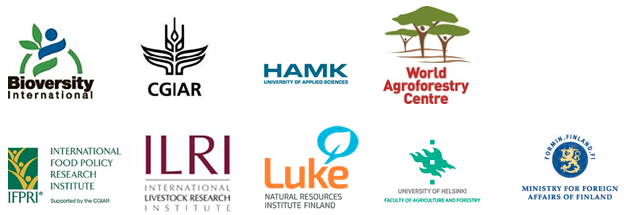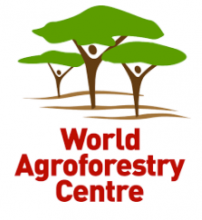Improving Food Security in West and East Africa
Finland-funded FoodAfrica program trains 20,000 farmers in sustainable farming practices
Published 03-06-18
Submitted by World Agroforestry Centre (ICRAF)

20,000 farmers in Benin, Cameroon, Ghana, Kenya, Senegal and Uganda have improved the security and quality of their food supply thanks to the FoodAfrica Programme. In addition to those farmers and their communities, it is estimated that the programme has also had an impact on the lives of over 200,000 people.
“FoodAfrica has been an extremely interesting and rewarding programme,” said Mila Sell, a senior scientist at the Natural Resources Institute Finland. “We have worked directly with people at different levels, from academics, policy makers, through to farmers, and they’ve given us immediate feedback. Through collaboration with these excellent partners, we have witnessed encouraging results. This initiative has definitely increased their knowledge and abilities on sustainable production of healthy and safe food. However, there is still a lot to be done to reach the Zero Hunger Sustainable Development Goal in Africa. The work must continue.”
Funded by the Government of Finland, the FoodAfrica Programme, which works from solid research to effective action, has enhanced sustainable food production, food safety and nutrition, and market access and agricultural extension. The research component of the programme has seen the production of 300 publications and training materials targeting farmers, agricultural extension workers, academia and policy makers. The programme has also enabled 31 people from the six countries to obtain Masters and PhD degrees, highlighting the importance of building national capacity to ensure sustainability of food security.
Among several other activities, the research included learning how to reduce the risk of aflatoxins in crops and milk, increase the profitability of dairy production through improved management and create new methods to improve soil properties. Through improved post-harvest methods, including drying, and using traditional fermenting methods, farmers reduced aflatoxin contamination by 80%. Researchers mapped micronutrients in soils, providing information to policy makers and recommendations for farmers on how to improve the quality of their soils.
“An important achievement of the programme’s work on innovative extension approaches was engaging volunteer farmer trainers to help increase the reach and sustainability of agricultural extension services,” said Dr Steven Franzel, an agricultural economist at the World Agroforestry Centre (ICRAF). “As a result, 85 organizations across four countries adopted the volunteer farmer trainer approach, or modified the approach they were using, in part due to exposure to our research. These organizations’ volunteer farmer trainers, in turn, work with several hundred thousand farmers.”
The key results of the Food Africa Programme are available online at www.luke.fi/FoodAfricaResults.
FoodAfrica is implemented by the University of Helsinki, Häme University of Applied Science, Natural Resources Institute Finland (LUKE) and four CGIAR centres: Bioversity International, International Food Policy Research Institute, International Livestock Research Institute and the World Agroforestry Centre (ICRAF). The CGIAR is a global partnership for a food-secure future.

World Agroforestry Centre (ICRAF)
World Agroforestry Centre (ICRAF)
The World Agroforestry Centre (ICRAF) is a centre of scientific excellence that harnesses the benefits of trees for people and the environment. Leveraging the world’s largest repository of agroforestry science and information, we develop knowledge practices, for farmers’ fields to the global sphere, to ensure food security and environmental sustainability.
ICRAF is the only institution that does globally significant agroforestry research in and for all of the developing tropics. Knowledge produced by ICRAF allows governments, development agencies and farmers to utilize the power of trees to make farming and livelihoods more environmentally, socially and economically sustainable at scales.
For more information, visit our website www.worldagroforestry.org.
More from World Agroforestry Centre (ICRAF)

